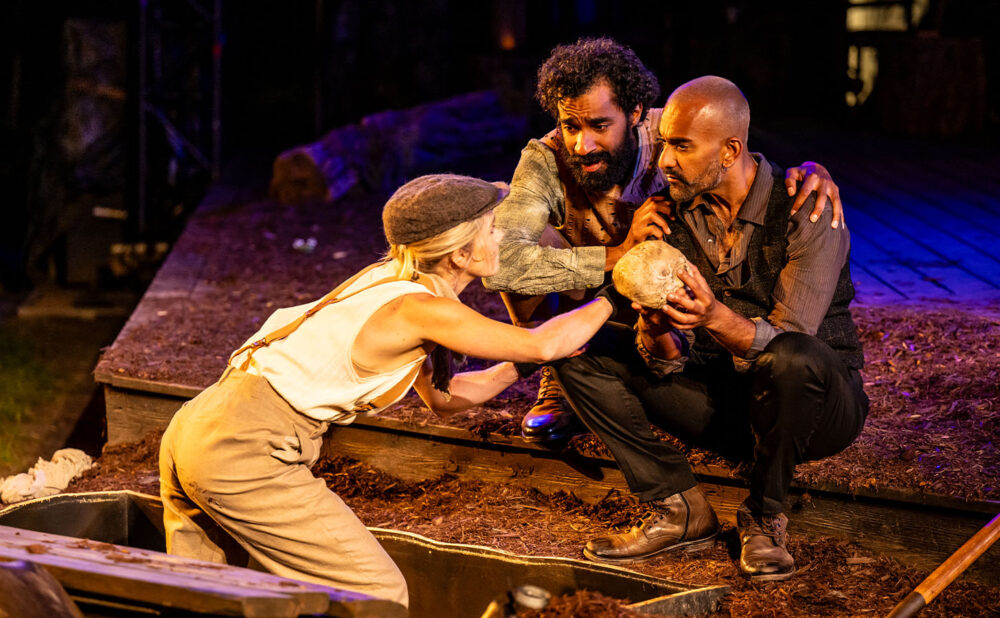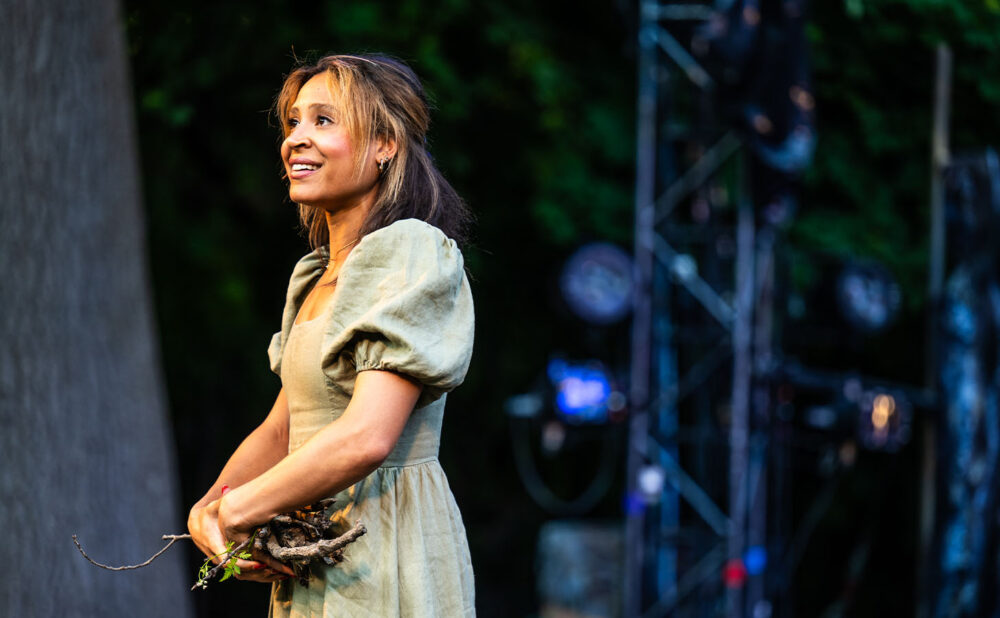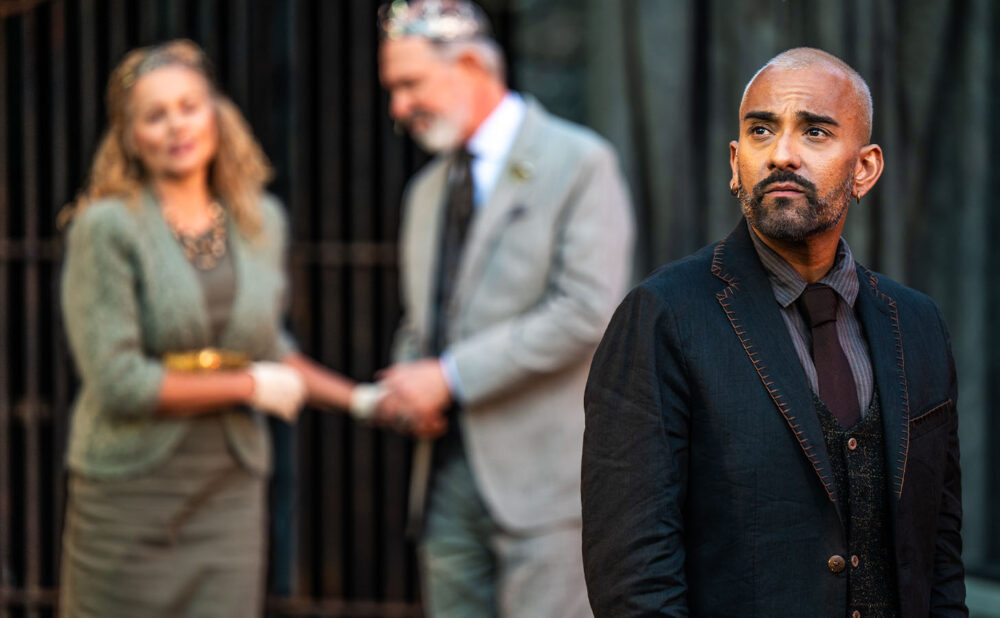Review: Fast-paced High Park ‘Hamlet’ abounds in thoughtful choices
Director Jessica Carmichael centres theme of grief without ignoring laughs
What: Hamlet
Where: High Park Amphitheatre, 1873 Bloor St. W.
When: Now, until Sun., Sept. 1
Highlight: Stephen Jackman-Torkoff’s weighty performance as tertiary character Horatio
Rating: NNNN (out of 5)
Why you should go: Canadian Stage’s previous two Dream in High Park productions were comedies, yet this tragedy sparks more laughs than both.
BECAUSE Jessica Carmichael’s High Park Hamlet slices Shakespeare’s longest play down to around two hours without intermission, it’s easy to get trapped thinking about all the textual changes she’s made — but what’s more interesting is how extraordinarily alive much of the production feels.
Although Canadian Stage’s previous two Dream in High Park plays (As You Like It and A Midsummer Night’s Dream) were comedies, this tragedy sparks more laughs than both. Its remarkable first hour barrels along at a brisk pace while still managing to carve out moments of seeming spontaneity.
After Laertes (Dan Mousseau) says goodbye to his sister Ophelia (Beck Lloyd), for instance, he goes to depart the stage for France but crashes into Polonius (Sam Khalilieh), the siblings’ bumbling dad. He then turns and performs a kind of exasperated bunny hop across the stage. Textually, this is one line of pentameter — “I stay too long. But here my father comes!” — but Carmichael transforms it into a drawn-out sequence of exciting theatrical action.
And while the following scene, in which Polonius monologues convoluted advice, typically sees him in a sermonizing mode, here a singsongy recitation indicates a surprising level of self-awareness — a fresh angle on a sometimes tedious character.
Plot eventually takes control, though, with the tragic events of the second half feeling like a harder swerve than usual after the preceding lightness. And since the production’s stated focus is grief, Carmichael draws out scenes involving reactions to deaths, slowing things down to a disarming degree. These sudden shifts in tone and speed instill this Hamlet with a jagged quality.
The formidable cast does much to unify the show. Qasim Khan plays Hamlet with selflessness, driving the action ahead by sending his energy outward rather than sucking it into himself; the resulting production almost reads as an ensemble piece. And the always-ignited Stephen Jackman-Torkoff combines specific body language with floods of emotion to give the tertiary role of Horatio its deserved weight. I don’t know that I’ve ever so believed Barnardo’s remark that Horatio is “trembl[ing] and look[ing] pale” after seeing the first scene’s ghost.
The production’s sense of playfulness, as well as its sparse, soil-laden visual world (costume/set design by Joshua Quinlan), make for a Hamlet particularly committed to theatricality. Within this context, Christopher Ross-Ewart’s assertive sound design, which conjures cinematic swells of electronic music nearly every time a climax arrives, sometimes comes off as out of place and overwrought: the action moves smoothly enough without it.
I wouldn’t say Carmichael’s experiment with Hamlet entirely coheres. Yet the fact that the show is an experiment — one abounding in thoughtful choices, at that — means it never fails to be of interest. I’d take it over a safe but polished production any day.







